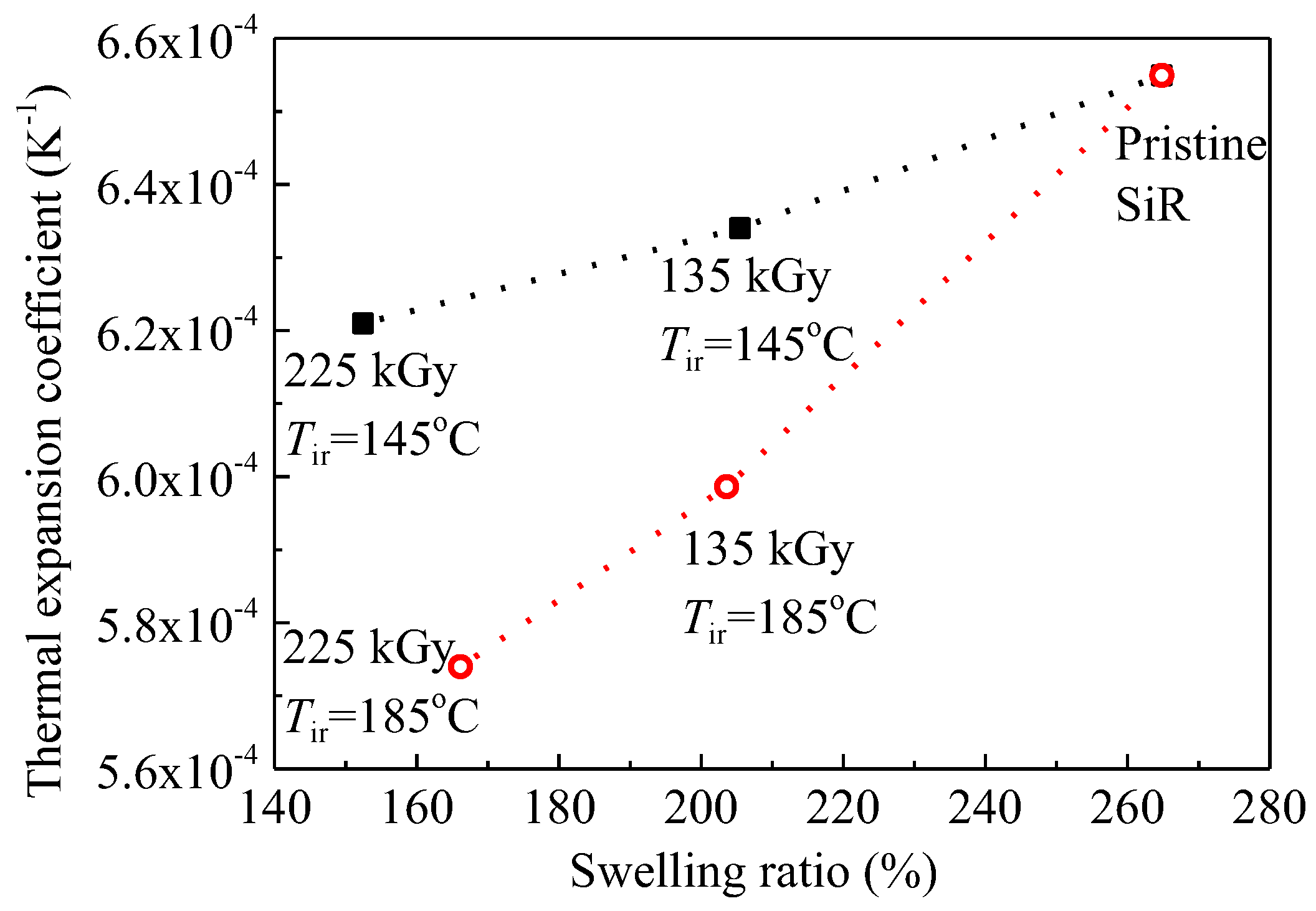Our dialometry testing services use netzsch dil 402 pc or similar instrument.
Silicone rubber thermal expansion coefficient.
There have been instances where a seal has ruptured a steel gland due to expansion when heated.
These forces are generated by thermal expansion of the rubber and or swelling effect of a fluid.
2 chart 2 plastics and other non metals.
For example silicone may expand linearly 5 9e 4 to 7 9e 4 in in c compared to aluminum at 23 0e 6 in in c or steel at 10 8e 6 in in c.
Thermodynamics effects of work heat and energy on systems.
Song in progress in rubber nanocomposites 2017.
Mse supplies stands behind our promise for h igh quality products with competitive pricing and dependable technical support from phd scientists.
The overall coefficient is the linear thermal expansion in per degree.
Silicones are polymers with a si o si backbone.
Silicone rubber 190 0 x 10 6 342 0 x 10 6 mech.
The curing method can be either vulcanized or catalyzed.
Generally linear thermal expansion is most applicable to solids.
Temperature expansion thermal expansion of pipes and tubes stainless steel carbon steel copper plastics and more.
Choose professional dilatometry and thermal expansion coefficient cte testing services from mse analytical services.
2 2 4 silicone rubber sir silicone rubber sir is an elastomer composed of silicone containing silicon carbon hydrogen and oxygen in the form of a polymer.
This expansion is an advantage for sealing applications.
Find linear thermal expansion coefficient α and volumetric coefficient for thermal expansion β at 20 c for rubber or for different material like brass copper concrete lead silver water and more.
If the seal is completely confined and the gland is 100 filled the dominating force is the force of thermal expansion of the rubber.
Untreated silicone in gel or liquid form will convert to solid after curing.
The table at.
Abs pipes pressure ratings pressure ratings of.
Material properties material properties for gases fluids and solids densities specific heats viscosities and more.
The coefficient of thermal expansion is defined as the change in length or volume of a material for a unit change in temperature.
Coefficient of thermal expansion silicone has a high thermal expansion coefficient and can be used as a temperature activation method or sensor in the design.
The linear thermal expansion coefficient cte is dependent on the material from which an object is made.
The cte employs reciprocal temperature units k 1 f 1 c 1 etc representing the length change per degree per unit length e g in in f or mm mm c.
Key properties include thermal stability chemical stability electrical insulation and low toxicity.
Carbons 1 2 to 2 5 x 10 6 2 16 to 4 5 x 10 6.
Thermal expansion is usually expressed in one of two ways either volumetric expansion or more commonly linear expansion expressed as a coefficient.

